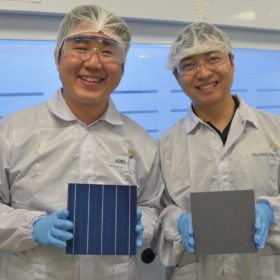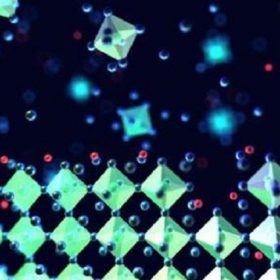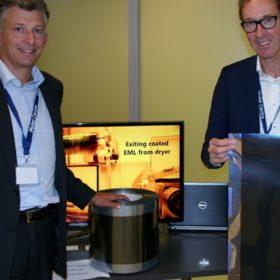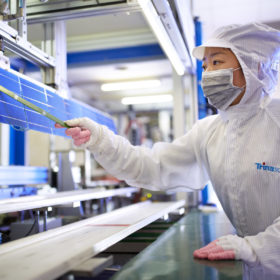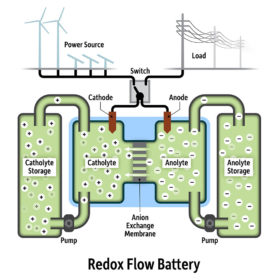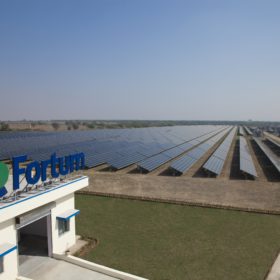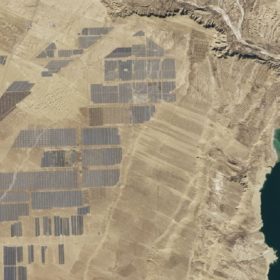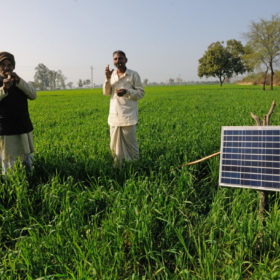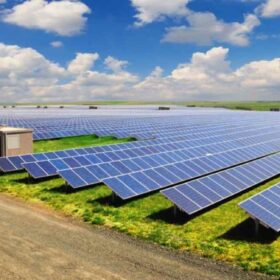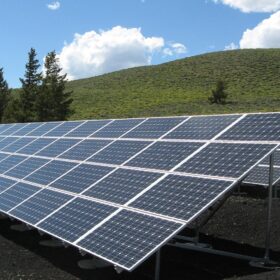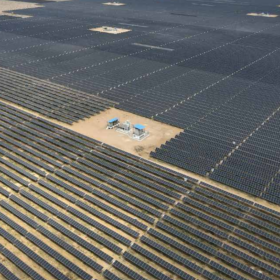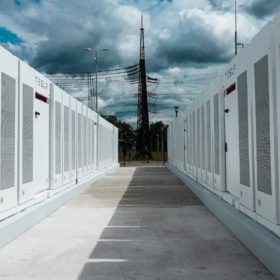SERIS researchers develop new multi-cSi texturing technique
Scientists from the Solar Energy Research Institute of Singapore (SERIS) have announced the development of a new wet chemical process to allow multi-crystalline Si wafers to be cut with diamond wire saw technology, and subsequently textured to reduce their reflectivity.
Fixing perovskite solar cell defects with potassium
Scientists led by Cambridge University have discovered that adding a simple solution of potassium to the ink solution has the effect of ‘healing’ defects in metal-halide perovskite films, and immobilizing ion movement. This, according to the researchers, could push the material to higher efficiencies, while also increasing its stability.
Netherlands Solliance hits 26.3% efficiency on perovskite/silicon tandem
European solar research organization Solliance and the Energy Research Center of the Netherlands (ECN) have announced the achievement of 26.3% efficiency on a transparent perovskite solar cell combined with a crystalline silicon solar cell.
Berkeley Lab scientists confirm century-old theory of high performance batteries
Researchers in the U.S. have confirmed the existence of a novel state of the element manganese, first proposed in a journal dating from 1928, which could allow for the development of low-cost, high performance batteries for grid level, and other energy storage applications.
China’s Trina Solar hits new efficiency record for IBC cell
Trina Solar has set a new record of 25.04% total area efficiency for an n-type interdigitated back contact (IBC) solar cell. The record has been independently verified by Japan Electric Safety and Environmental Technology Laboratory.
U.S. researchers develop new redox flow compound
A team of scientists from the U.S. University of Rochester has developed a compound which it says could double the effectiveness of redox flow batteries, and ‘transform the energy storage landscape’.
Fortum connects 100 MW PV plant in Karnataka
A 100 MW solar park in Tumkur District has been connected to the regional grid in Karnataka, reports project owner Fortum. The project is Fortum’s fourth project to be connected in India, and its largest so far, more than doubling its total capacity to 185 MW.
AECEA: 50 GW within reach for 2017 installations in China
According to the latest briefing from Asia Europe Clean Energy Consultants (AECEA), China is likely to install more than 50 GW of PV in 2017, a second consecutive record breaking year for the world’s leading market.
India’s MNRE signs grid and RE framework with Germany’s GIZ
Agreement signed between India’s Ministry of New and Renewable Energy & GIZ Germany seeks improvement of framework conditions for grid integration and renewable energies.

